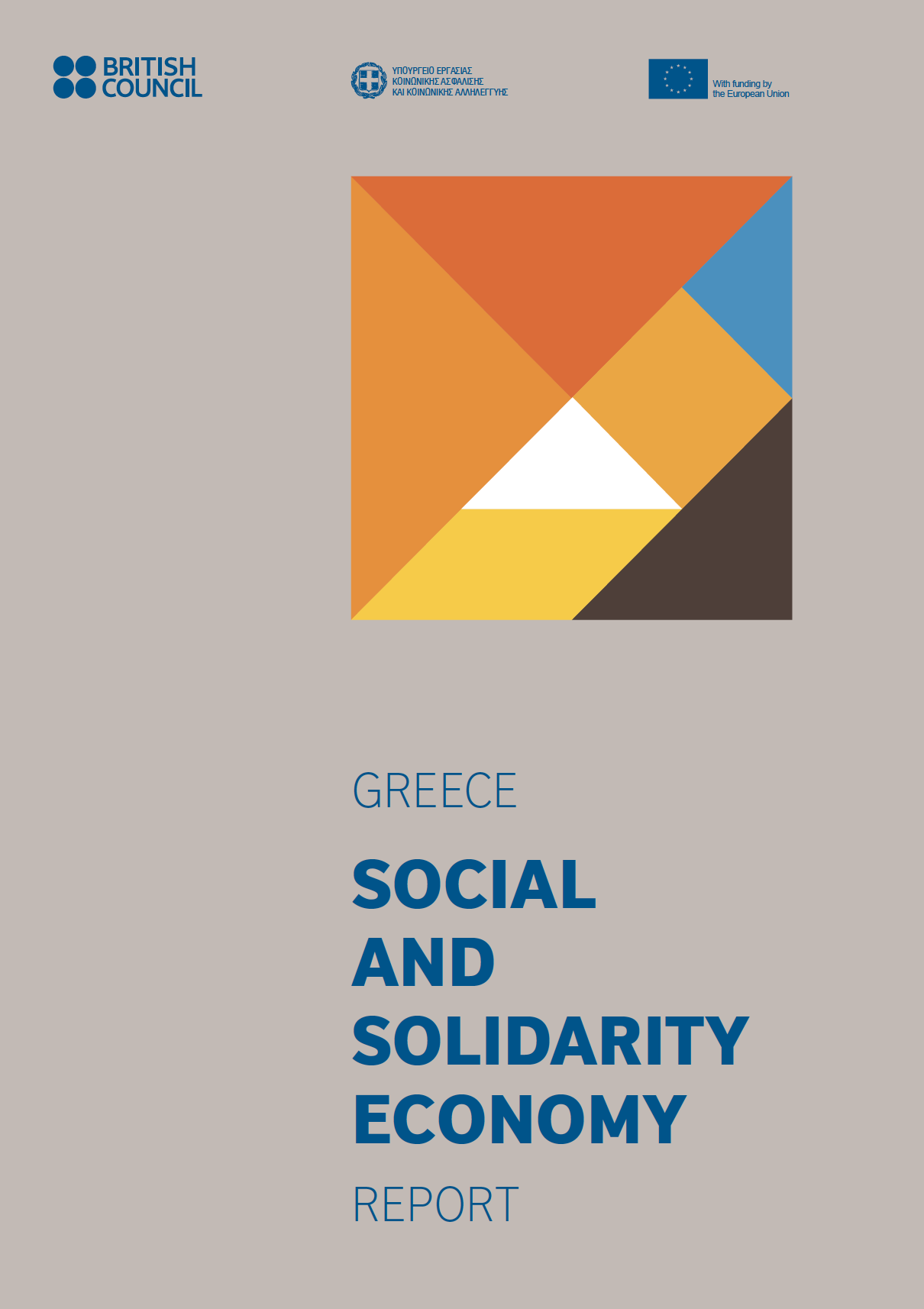Greek social economy is young and optimistic, research finds
Greece has a young, optimistic and developing sector of social enterprises, co-operatives and other similar organisations, new research reveals.
In May, the British Council published the Greece Social and Solidarity Economy Report. It gives the fullest picture to date of the growing movement of organisations in what is called the “social and solidarity economy” and highlights the challenges they face as well as the current support on offer.
The report, written by Greek non-profit European Village and Social Enterprise UK for the British Council, points out that the sector in Greece is currently significantly underdeveloped in relation to other European countries. The majority of organisations are recently established, still small and facing challenges to their sustainability and growth.
However, the organisations are beginning to help to tackle some of the country’s most significant social challenges, especially poverty and unemployment, while also promoting alternative business models that incorporate social benefit alongside their economic activity.
The researchers found that the current challenging economic and social landscape in Greece is viewed by these organisations as a reason why a stronger sector is needed “in order to create new opportunities, address unemployment and establish new economic and entrepreneurial models in areas where mainstream paradigms have failed”.
And this sector is backed by the government. Antonis Vorloou, the Greek social and solidarity economy special secretary who is based in the Ministry of Labour Affairs, told Pioneers Post that development of the social economy is a government priority “as it contributes to inclusive economic development while combatting unemployment and social exclusion and advancing the democratisation of work and production”.

Greek PM Alexis Tsipras speaks with the British Council's Maria Nomikou at the Social Economy Expo in Athens in November 2017 © British Council
The roots of the movement
The social and solidarity economy movement developed quickly after the Greek economic crisis began in 2010. While some protestors focused their efforts on violence, others gathered together in the city squares and talked about solidarity, about new ways to trade and about the concept of a social economy. Some of them founded timebanks – systems to exchange voluntary actions for other resources, some bartered fruit and vegetables, others developed clinics staffed by volunteers and funded by donations.
In 2011, a new law defined social economy and social co-operative enterprise in Greece for the first time as well as introducing a government registry for these organisations. This law was superseded in 2016 with further legislation that offers a wider defining framework.
The movement does have deeper roots – co-operatives have existed for a long time, particularly in farming, and some enterprises have employed people from vulnerable social groups. One of the most well-known of these is the Social Cooperative of Dodecanese which in the 1990s transformed an asylum on the island of Leros into a business that employs people with mental health issues to work in farming, making sweets and pastries, and honey production.
More recently, similar co-operatives have developed, such as the Myrtillo cafe in Athens (pictured top), which opened in 2013 to employ people with disabilities.
So, today, as the research highlights, there are a variety of different organisations that make up the social and solidarity economy, from informal initiatives to more formally constituted co-operatives and enterprises.
Key findings
The research took place at an interesting time for the movement, following a period of intense growth and while recent changes in legislation made it challenging to define and quantify the organisations involved.
The researchers analysed data from official sources, examined other pieces of research and reached out to 1,265 organisations via an online survey, focus groups and interviews. The key findings are as follows:
- There are approximately 1,500 social and solidarity economy organisations in Greece.
This group is made up of:
- Around 600 active social and solidarity economy organisations, according to the official government registry (which is currently undergoing a transition).
- Hundreds more organisations with different legal forms and informally constituted organisations.
Of the survey respondents:
- 68% were established in the last five years.
- 74% have an annual turnover of less than €50,000.
- Most operate at local and regional levels.
- 78% focus on addressing unemployment.
- 68% expect to increase their turnover in the next 12 months.
- More than 90% believe that the sector has the potential to grow in their industry and in their geographical area.
- Access to appropriate finance is the biggest barrier to sustainability and growth.
- 35% are led by women.
- 41% of leaders have a postgraduate or doctoral level of education.
Challenges
Although recent years have also seen a rise in support bodies for the movement, including branches of Ashoka and Impact Hub, there are still significant challenges.
In spite of the fact that many survey respondents were optimistic about their future growth, the researchers noted big hurdles to overcome, including bureaucracy, a lack of awareness about the sector’s work, poor commissioning and procurement from the public sector and a lack of appropriate finance.
The researchers, therefore, offered recommendations to support the development of the movement, as follows:
- Establishing a national centre to support the social and solidarity economy in Greece.
- Creating a communication and awareness-raising strategy to promote the movement.
- Providing start-up seed capital as grants or loans to emerging enterprises.
- Convening a social finance task force to identify alternative forms of finance.
- Importing and adapting proven specialist learning programme models.
- Providing training in social impact measurement.
Government backing
The Greek government is keen to offer support and has put in place an action plan to support the development of the social and solidarity ecosystem running from 2017 to 2023 with a budget of €170m. The money will be used to establish up to 100 support centres across the country, as well as providing grants, different types of loans and loan guarantees.
Perhaps the key element to develop is that underlying culture of solidarity and giving, as opposed to the pursuit and securing of individual benefits
The British Council too is supporting the sector in partnership with the government, local authorities and other organisations offering technical assistance, training and opportunities for networking.
In spite of these initiatives, the special secretary Antonis Vorloou emphasises that a big cultural shift is still needed in Greece. He points out that the sector is at an early stage of development with regional disparities between urban and rural areas, and adds: “Creating a supporting environment for the development of the social and solidarity economy is a necessary but not a sufficient condition in itself. Perhaps the key element for the sector to develop is that underlying culture of solidarity and giving to the community, as opposed to the pursuit and securing of individual benefits.
“Unfortunately, this philosophy has not gained mainstream status and much work is required on our part, but also by the sector itself in order to promote it.”
He is ambitious that the movement will deliver better things for the Greek people. He concludes: “Obviously, the goal is ambitious but the benefits of achieving it are many, both for the sector and Greek society.”
 Download a copy of the Greece Social and Solidarity Economy Report here.
Download a copy of the Greece Social and Solidarity Economy Report here.

